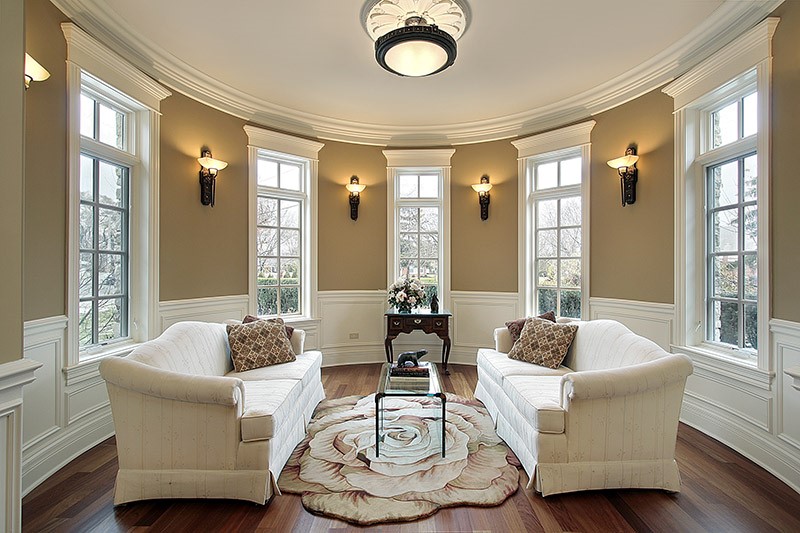When it comes to enhancing the beauty of our homes, many of us tend to overlook the power of decorative elements, particularly window moulding. Having spent years in the home improvement industry, I’ve come to appreciate how transformative window moulding can be, not just in terms of aesthetics but also in adding value to a home. In this comprehensive guide, we’ll explore everything you need to know about decorative window moulding—from types and installation to maintenance and styles.
What is Decorative Window Moulding?
Decorative window moulding refers to the trim and casing that surrounds a window. It serves both functional and aesthetic purposes, framing the window while adding character and style to a room.
Types of Decorative Window Moulding
- Traditional Moulding: Often made of wood, traditional moulding features detailed craftsmanship with intricate designs.
- Modern Moulding: Sleeker and minimalist, contemporary moulding focuses on clean lines and simplicity, typically using materials like MDF or PVC.
- Beadboard Moulding: This type features vertical panels with grooves, adding texture and depth.
- Colonial Moulding: Classic and timeless, this moulding often includes elaborate details reminiscent of the Colonial era.
Benefits of Using Decorative Window Moulding
Investing in decorative window moulding can offer numerous benefits:
Enhances Aesthetic Appeal
The right moulding can significantly enhance the overall look of a room, giving it a custom, finished appearance.
Increases Home Value
Homes with well-installed moulding can garner higher resale values, as buyers appreciate the accentuated architectural details.
Improves Energy Efficiency
Quality moulding helps seal windows better, potentially reducing energy loss and improving heating and cooling efficiency.
Choosing the Right Moulding for Your Windows
Selecting the appropriate moulding involves considering several factors:

Style of the Home
The style of your home plays a crucial role in moulding selection. Traditional homes often benefit from ornate designs, while modern homes may look best with minimalistic profiles.
Material Options
| Material | Pros | Cons |
|---|---|---|
| Wood | Natural look, easy to paint | Prone to warping and pests |
| MDF (Medium Density Fiberboard) | Cost-effective, versatile | Less durable than wood |
| Polyurethane | Weather-resistant, lightweight | Can be more expensive |
| PVC (Polyvinyl Chloride) | Water-resistant, easy maintenance | Less natural appearance |

Installation Process for Decorative Window Moulding
Installing decorative window moulding can be a DIY project, but it’s essential to have the right tools and materials.
Tools You Will Need
- Miter saw
- Nail gun or hammer
- Level
- Measuring tape
- Caulk
Step-by-Step Installation Guide
- Measure the Window: Take precise measurements of your window frame.
- Cut the Moulding: Use a miter saw to cut the moulding at a 45-degree angle for corners.
- Dry Fit: Before attaching, dry fit the moulding around the window to ensure proper fit.
- Nail the Moulding: Begin fastening the moulding starting from the top and working downwards.
- Fill Gaps: Use caulk to fill in gaps and nail holes for a clean finish.
- Paint or Stain: Finish by painting or staining to match or complement your room.

Maintaining Your Decorative Window Moulding
Proper maintenance can extend the life and beauty of your decorative moulding:
Cleaning Tips
- Use a soft cloth to dust regularly.
- For painted moulding, a damp cloth with mild detergent can help remove stains.
Regular Inspections
Check for signs of damage or wear, such as paint peeling or cracks, especially in wooden moulding. Early intervention can prevent costly repairs.

Personal Experience: My Journey with Window Moulding
Reflecting on my journey with decorative window moulding, I recall my initial hesitation. I wasn’t an expert; I was just someone looking to enhance my living space. But after successfully installing moulding in my living room, I achieved an elegant look that made my home feel entirely new. Not only did it elevate the ambiance, but it also drew compliments from friends and family, reinforcing my belief in the power of small home improvements.
Comparing Popular Decorative Window Moulding Styles
| Style | Best For | Average Cost per Linear Foot |
|---|---|---|
| Traditional | Classic homes | $3 – $10 |
| Modern | Contemporary homes | $2 – $7 |
| Colonial | Historic restorations | $4 – $12 |
| Beadboard | Rustic styles | $3 – $8 |

Common FAQs about Decorative Window Moulding
What is the best material for window moulding?
Wood is often considered the best for its classic appeal, but MDF is a popular choice for budget-friendly projects.
Can I install window moulding myself?
Absolutely! With the right tools and careful measurements, installing window moulding can be a rewarding DIY project.

How do I choose the right style for my home?
Consider your home’s overall architecture and existing decor. Traditional styles work well with classic homes, while contemporary designs suit modern aesthetics.
How often should I maintain my moulding?
Regular dusting and periodic checks for damage should be part of your home maintenance routine.

Is decorative moulding worth the investment?
Yes! Decorative moulding not only enhances beauty but can also increase home value, making it a worthwhile investment.
Conclusion
Decorative window moulding is more than just a trim; it’s an opportunity to express your personal style and elevate the charm of your home. Whether you opt for timeless traditional designs or sleek modern finishes, the right moulding can make all the difference. Dive into this creative home improvement project and see the transformation for yourself!